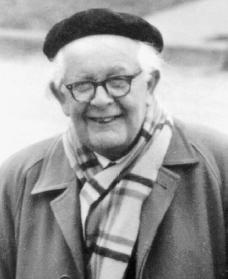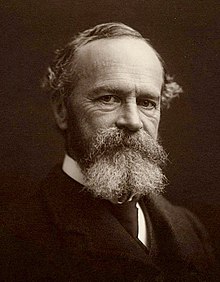
Date and place of birth: August 9, 1896 in Neuchâtel, Switzerland
Date and Place of death: September 17, 1980 in Geneva, Switzerland
University: University of Neuchâtel, University of Zürich
Subject of study: Zoology
Field of professional study: Developmental Psychologist, Epistemologist
Important theories or discoveries: Cognitive Development
- Piaget's theory is based on stages, and each stage has different type of thinking. Conversion from one to other stages are generally very fast, and characteristic of each stage is not change. Also, that characteristic is universal, so it does not regard the differences like ages.
He also writes about interaction between child and environment, that he believes child cannot learn anything without interacting with environment.
2. Leon Festinger

Date and place of birth: May 8,1919 in New York City
Place of death: February 11, 1989 in New York City
University: University of Lowa
Subject of study: Psychology
Field of professional study: Social Psychologist
Important theories or discoveries: Cognitive dissonance and social comparison theory
- Cognitive dissonance: It is that we have an inner drive to hold our attitudes and beliefs in harmony, and avoid dissonance. It is associated with a conflicting attitudes, such as attitudes and beliefs.
- Social comparison theory: It is that we have an inner drive to accurately evaluate our opinions and abilities.
3. Neal Miller
Date and place of birth: August 3, 1909 in Milwaukee, Wisconsin
Date and Place of death: March 23, 2002 in Hamden, Connecticut
University: University of Washington, Stanford University, Yale University
Subject of study: Psychology
Field of professional study: Experimental Psychologist
Important theories or discoveries: Dollard-Miller theory and development of biofeedback
- Dollard-Millar theory: “frustration can lead to aggression, and aggression can be caused by things other than frustration.” He suggested psychotherapy, the ways to treat the mental problems, for aggression, frustration, and anxiety.
- Development of biofeedback: He concluded that automatic nervous system is sensitive to classical conditioning.
4. Gordon Allport

Date and place of birth: November 11, 1897 in Montezuma, Indiana
Date and Place of death: October 9, 1967 in Cambridge, Massachusetts
University: Harvard University
Subject of study: Psychology
Field of professional study: Psychologist
Important theories or discoveries: Trait theory
- He suggests the three trait levels; cardinal trait, central trait, and secondary trait. Cardinal trait dominates and shapes person's behavior. Central trait is found in some degree in every person, and secondary trait is seen in only specific situation.
5. William James

Date and place of birth: January 11, 1842 in New York City
Date and Place of death: August 26, 1910 in Tamworth, New Hampshire
University: Harvard Medical School
Subject of study: Medicine
Field of professional study: Western Philosophist and Psychologist
Important theories or discoveries: James-Lange theory of emotion
- It suggests that our emotions are caused by our interpretations of these physiological reactions.
6. Stanley Hall

Date and place of birth: February 1, 1844 in Ashfield, Massachusetts, USA
Date and Place of death: April 24, 1924 in Worcester, Massachusetts, USA
University: University of Harvard, University of Berlin
Subject of study: Psychology
Field of professional study: Psychologist
Important theories or discoveries: child study movement
- He gathered all the data of children's moral, intellectual, and emotional development.
7. Sigmund Freud

Date and place of birth: May 6, 1856 in Freiburg, now Czech Republic
Date and Place of death: September 23, 1939 in London England
University: University of Vienna
Subject of study: Psychoanalysis
Field of professional study: Neurology, Psychotherapy, Psychoanalysis
Important theories or discoveries: Talking cure, Psychoanalysis
- Talking cure: people remember more than when they are in comfortable state unconsciously on the couch
- Psychoanalysis: psychological and psycho therapeutic theory
8. Raymond Cattell

Date and place of birth: March 20, 1905 in Hilltop, near Birmingham England
Date and Place of death: February 2, 1998 in Honolulu, Hawaii
University: University of London
Subject of study: Chemistry
Field of professional study: Psychologist
Important theories or discoveries: 16-factor personality theory
- It is about human personality that is made of many traits and dispositions
9. Anna Freud

Date and place of birth: December 3, 1895 in Vienna
Date and Place of death: October 9, 1982 in London
University:
Subject of study: Psychoanalytic Child Psychology
Field of professional study: Psychoanalysis
Important theories or discoveries: Work on the natural of Ego
- Study about important of Ego and finds the ability to be sociable
10. Mary Ainsworth

Date and place of birth: December 1, 1913 in Glendale, Ohio
Date and Place of death: March 21, 1999 in Chalottesville, Virginia
University: University of Toronto, Johns Hopkins University, University of Virginia
Subject of study: Study of mother-infant interaction
Field of professional study: Developmental Psychologist
Important theories or discoveries: Attachment Theory
- It describes dynamic of a long-terms relationship between humans


